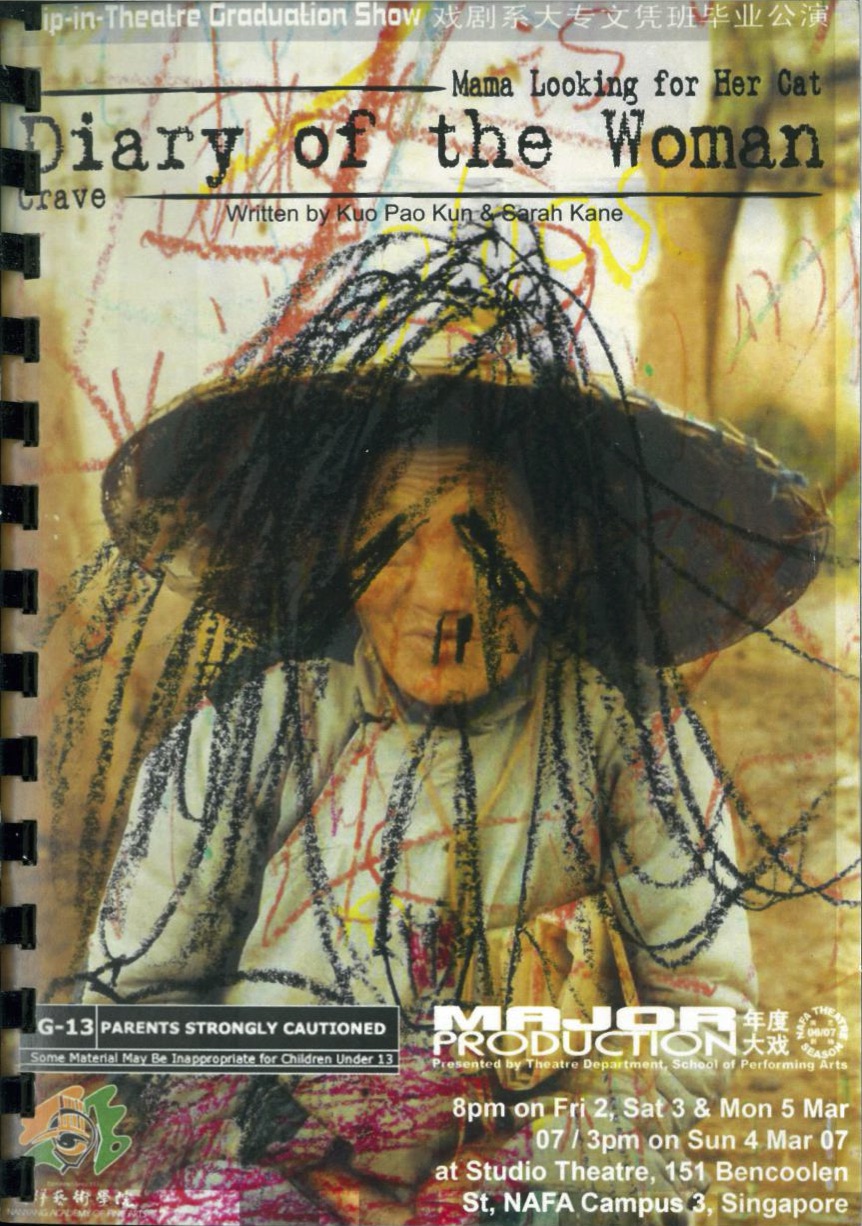Mama Looking for Her Cat
First staged by the Practice Theatre Ensemble on 10 Aug 1988 at the Singapore Conference Hall, Mama Looking For Her Cat was Singapore's first multi-lingual play, and thus the first to reflect in form as well as substance the multi-cultural reality here.
Most immediately, Mama Looking For Her Cat depicts the breakdown in communication and estrangement between a Hokkien speaking mother and her children, who could only express their thoughts in English and Mandarin.
The play was created through Kuo's workshops with a multiracial ensemble which included T Sasitharan, the late William Teo, Verena Tay and Neo Swee Lin, a veritable who's who of today's theatre scene.
To demonstrate this language barrier and the resulting alienation, Kuo not only allowed his actors (and characters) to speak in non-Mandarin dialects, he also used Brechtian and Eastern ideas such as songs and cross talk, and Grotowski performance techniques.
While the language barrier dominates the first version of the play, it is but one barrier to communication in Kuo's Mama. It might even be seen as an extended metaphor for all barriers between sections of Singaporeans that result from 'pragmatic' policies designed to solve our pressing problems. The barriers are not just between people of course - the loss of a true 'mother tongue', for instance. distances us from our cultures. This understanding is important because this version of Mama does not emphasise language as the source of alienation. Rather it examines issues even deeper than not sharing a common language.
Crave
For Sarah Kane, Crave marked a shift in terms of formal structure. More of a tone poem than a conventional drama, the published playtext states:
Having pioneered a new theatre where brutality and action express an emotional narrative, here she deploys language like music. Rhythm and orchestration are as vital here as content to understanding and responding to the play.
Several critics note that the text has echoes of ,the King James Bible, Shakespeare, T S Elliot and Samuel Beckett. Kane has also spoken of the direct influences on her of Rainer Werner Fassbinder's play Pre-Paradise Sorry Now (1970) and Martin Crimp's Attempts on her Life (1997).
The form of the play, with its use of numerous allusions, makes Crave a demanding work, and one that constantly eludes a definitive interpretation. Its inherent intertextuality underpins its formal and thematic structure: fragmentary quotations taken from literary, religious and popular culture are embedded within the characters' own elliptical narratives.
